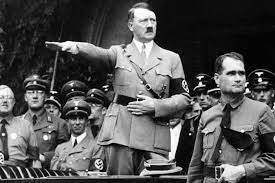Usually, I access my news from Japanese TV or newspapers. Watching news programs or reading newspapers every day, I obtain information about what is happening in Japanese society, meaning that TV and newspapers are essential tools for me to stay informed. Specifically, I watch news programs broadcasted by commercial broadcasting such as Nippon TV, Fuji television, TV Asahi, TBS. Besides, I always watch news broadcasted by NHK, a national broadcaster of Japan. In terms of newspapers, I mainly read a Nikkei newspaper, indeed almost every day. Notably, in the Japanese media industry, cross-ownership remains. Edge (2008, p. 1079) explains that “cross-ownership of media occurs when a person or company owns outlets in more than one medium in the same geographical market.” This situation occurs in Japan. In the case of Japan, certain mass media groups have ownership of multiple media. For example, a Yomiuri group, which is one of the largest mass media groups in Japan, has ownership of a newspaper company, TV station, radio station. Moreover, in addition to the Yomiuri group, four more large mass media groups have ownership of multiple media. Such structure of media ownership enables those large mass media groups to control the main media in Japan, such as newspapers, TV, or radio. On the other hand, NHK belongs to the Japanese government. Thus, the government has a right to control the broadcasting of NHK.

As I mentioned above, the Japanese media industry has a strong cross-ownership structure, and it causes some concerns relating to the biased coverage. The concentration of media ownership would prevent us from receiving diverse information or opinions. Instead, it would facilitate media owners to send biased messages to the audience. The example of the Nazi shows the danger of the concentration of media ownership. The Nazi controlled the media and used propaganda effectively, which lead to trigger the historical tragedy. As the example of Nazi indicates, the lack of diversity in media ownership would give certain people the power to regulate the information in their hands and collapse the democracy. Baker (2006, p. 5) explains that “authoritarian regimes regularly try to censor or control the mass media’s provision of vision and information. The health of democracies, in contrast, depends on having a free press.” As he states, having a free press is an integral part of democracy, but the concentrated media ownership inhibits this. Cross-ownership enables particular media to control the information shared with an audience, then deprives us of having diverse argumentation, which is an essential part of democracy.

I have trust in my news resources to some extent but I do not believe that all the information delivered by the media is true. I sometimes notice that the expression of the news is exaggerated, and the news might include some false information. Besides, I think that most of the media broadcast similar news and as a result, there is less diversity in the Japanese media. Especially, news programs that I watch on TV often broadcast similar news these days. Thus, in my opinion, I cannot completely trust the news resources of the Japanese media because of such reasons.
Reference
CE, Baker 2006 ‘Democracy at the Crossroads: Why ownership matters’, Media concentration and democracy: Why ownership matters, Cambridge University Press, pp. 5-53.
M, Edge 2008 ‘Cross-Ownership’, The international encyclopedia of communication, pp. 1079-1083.